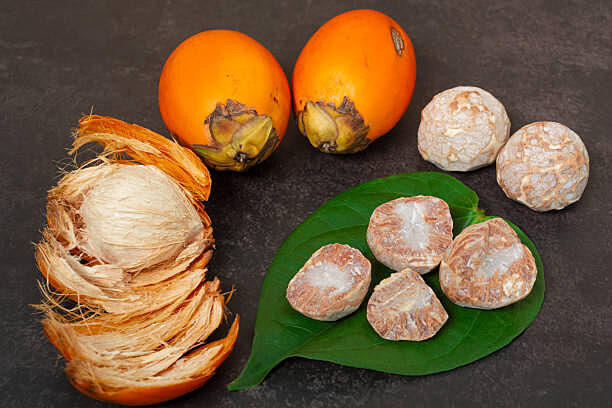Research sheds new light on effects of ‘betel nut’ stimulant used by millions worldwide

Hundreds of millions of people around the world chew betel nut for its various effects. Some users find it invigorating. Others find it relaxing or use it because it is an essential part of their culture. Unfortunately, betel use can also lead to oral disease and cancer. Now, University of Florida researchers and their collaborators know more about why one of the world’s most popular stimulants is so dangerous and addictive.
The betel nut, a seed of the areca palm, is grown and used throughout India, parts of China and much of South Asia. Chewing the betel quid — a mixture of areca nut, spices and slaked lime wrapped in betel vine leaves — has been a cultural tradition in those regions for centuries. In small doses, it can create a sense of euphoria and alertness. It may also function as an antidepressant. Prolonged use creates addiction and the World Health Organization classifies the betel nut as a carcinogen.
Findings published recently by Roger L. Papke, Ph.D., a pharmacology professor in the UF College of Medicine, and his colleagues shed new light on the betel nut’s effects on the body. Their data suggest toxic elements of high molecular weight contribute to the oral health dangers of betel quid use. Two low molecular weight compounds may provide elements of reward and treat depression, which could help to explain the appeal of long-term betel nut use.
“Now, we and others have established that betel nut users are chronically self-administering an antidepressant. They start chewing areca nut and they get these antidepressive effects. It makes them feel better so they are encouraged to keep doing it,” Papke said.
Read the paper in the journal Addiction Biology. To see a video about Papke’s betel nut research, go to https://bit.ly/3clcCkt. To read previous stories about betel nut research at UF Health, visit https://bit.ly/3pGkfoR and https://bit.ly/3AN80gt, or go to Dr. Papke’s web page.
About the author
